When you think of MUD listings, chances are you picture the same few sites that have been around for decades – some of them archived, some seemingly abandoned.
Times have certainly changed. MUDs started as experiments on university campuses, expanded into entrepreneurial ventures, and eventually ebbed into a hobbyist niche.
The older listing sites are now a bit like living archives, providing us with a glimpse into that decades-long history. But what about the future? What’s next?
Enter MudVault. Built by long-time MUD developer Asmodeus, MudVault.org is more than a game directory – it’s a modern hub for discovering active communities and helpful dev tools.
In this interview, Asmodeus talks about his path into MUDs, his work on Dark Wizardry, and how those experiences shaped the creation of MudVault – a project designed to support the MUD community by making it easier to find active games.
Meet Asmodeus: café-owner by day, Demon by night
Located in Australia, Asmodeus (also known as “Demon”) splits his time between running a barista training school, opening a café, and doing freelance software development. And on top of all that, he’s deeply involved in the MUD community, where his projects range from client tools to full game administration.
When I remarked on how productive he is and how I wish I had more time for my own hobbies, he joked, “The trick is to just not sleep.” 😅
Asmodeus first discovered MUDs years ago through family members and old gaming sites, with early favorites like Aardwolf and Alter Aeon sticking with him over the years. Many of the minor details are fuzzy for him now, he admitted, but the world of MUDs made a lasting impression – and eventually led to the projects he runs today.
Dark Wizardry: Multiclassing it up since 1994
One of those projects is, of course, the long-running fantasy game Dark Wizardry.
Dark Wizadry is a multi-class MUD where you can level across five main classes at once and specialize further in dozens of extra classes, unlocking new races, skills, and areas with each remort. With player-run clans, seasonal events, and 100+ custom zones, it promises both endless replayability and a welcoming community to boot.
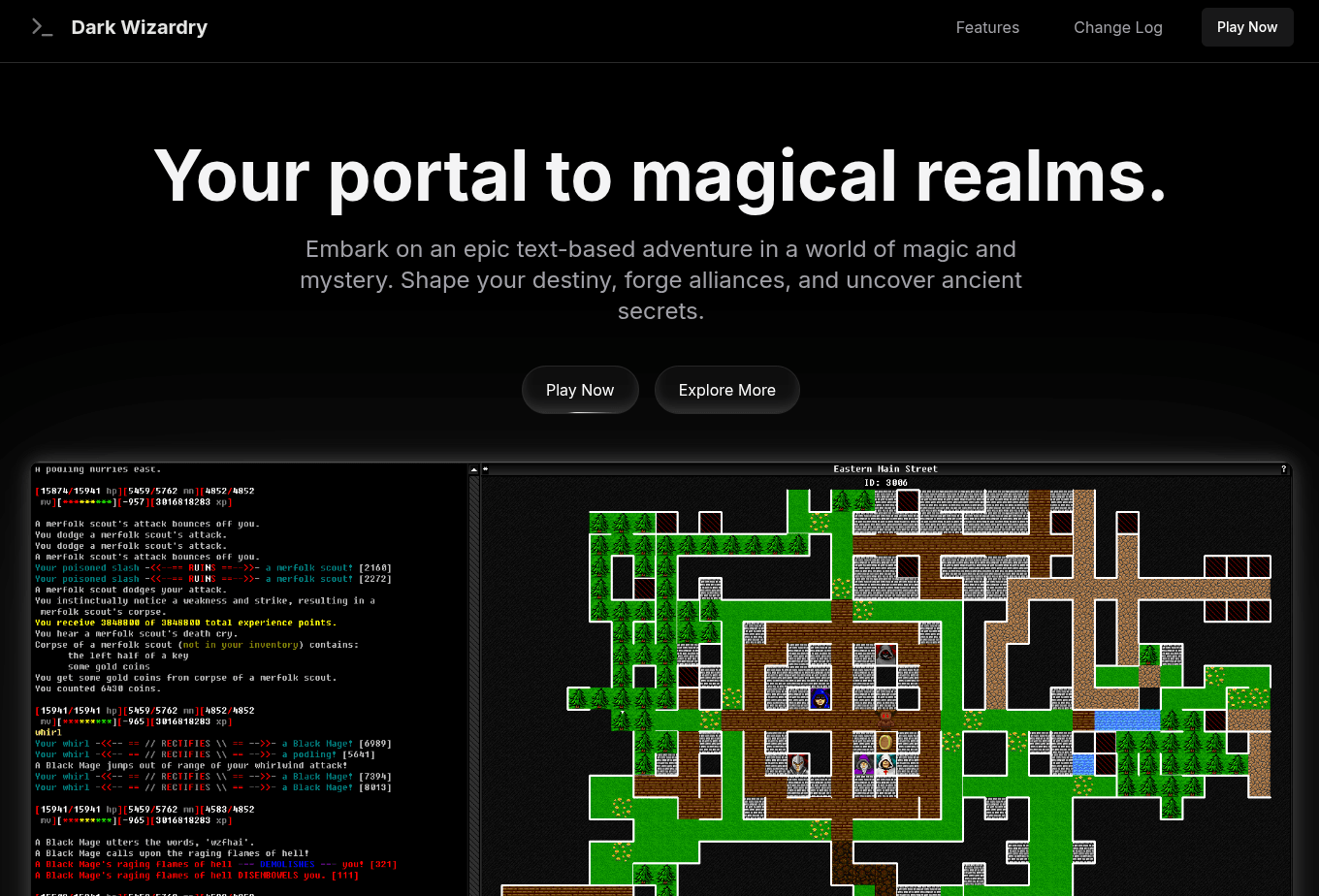
These days, Asmodeus is best known as the game’s owner and administrator. He manages nearly every aspect of the MUD: building, coding, creating custom clients (including both web and terminal interfaces), and maintaining the website.
But none of these things would mean anything to him without players.
“My most important job is focusing on improving the user experience,” he said. “I am adding new stuff to the game daily, and I make it a point to ask people on gossip [the main chat channel] if they have any QoL requests.”
“We’ve got a very tight community that is very helpful. Our ASCII map is REALLY, REALLY nice, and had a LOT of work put into it, and there are so many cool mechanics in the game!”
But for Asmodeus, Dark Wizardry isn’t just a beloved game. It’s also a live testing ground: he prototypes new ideas there, refines them with player feedback, and often carries them forward into his latest project, MudVault.
MudVault: modernizing MUD discovery
At its core, MudVault is a modern, ad-free hub for finding active MUD games. Beyond that, the site has dedicated areas for codebases and snippets, developer utilities like the MUD Colorizer, and an MSSP testing tool.
The MSSP tool helps game admins implement and test the MUD Server Status Protocol, which reports game information to status pages and directories like MudVault.
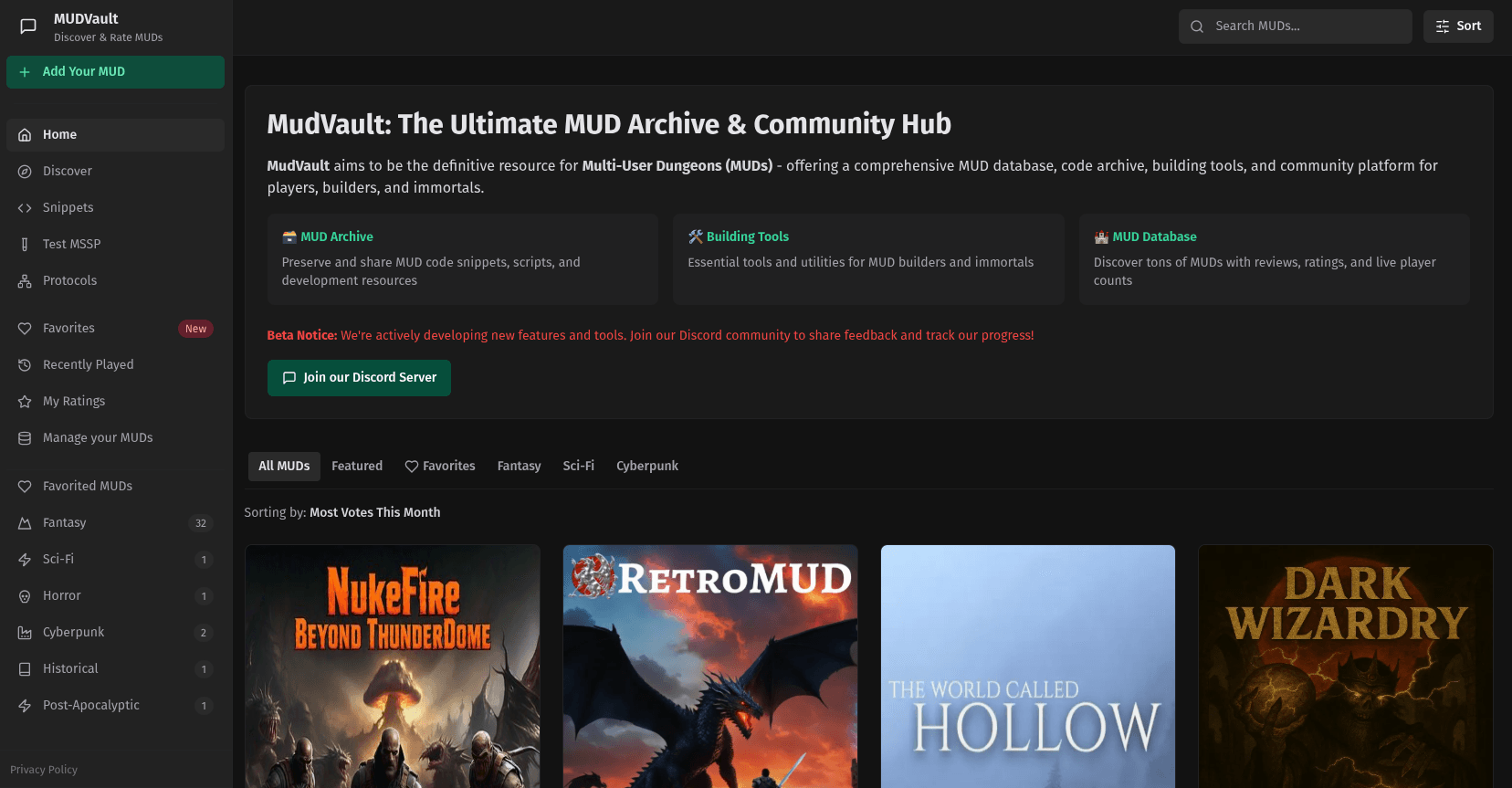
Speaking of protocols… also central to MudVault is its protocols page – an evolving reference that pulls common MUD and Telnet protocols into one place.
Having personally implemented most of the protocols across Dark Wizardry and MUDForge, Asmodeus wanted to provide other devs with a centralized resource, including documentation and helpful examples. The long-term idea is to have a full protocols and tools section (this is actually where the “vault” concept comes from), but for now he’s adding pages individually as they mature.
Beyond documenting protocols, Asmodeus has also experimented with extending them:
“I invented MCCP4, which uses zstd instead of zlib. Zstd uses a modern compression standard that’s orders of magnitude better than earlier implementations.”
Asmodeus has already tested it in Dark Wizardry and in MUSHclient, with a snippet available for anyone to try. If you’re interested in testing MCCP4 yourself, just DM him on Discord, and he’d be glad to share the details. No clients officially support it yet, but he says the implications for smoother, faster connections are promising.
He’s also been jointly working on something he calls the MudVault MESH – a stable way for MUDs to communicate with other games and services, similar to InterMUD chat.
Currently, he has it running in his game, along with a Discord bridge, but it’s not quite ready for an official release, yet. If you’re curious, stop by the MudVault Discord – Asmodeus would be happy to tell you more.
Addressing the elephant in the room
If you ask him, Asmodeus isn’t too shy about it: one of his reasons for creating MUDVault is to provide the community with an unbiased look at which games are actually being played and promoted by real players.
“I wanted to create a fair system that rewarded active MUDs and helped people discover them,” Asmodeus said.
The goal? To avoid the pitfalls of older MUD listing sites whose voting systems could be manipulated or are no longer being monitored.
“Last month, I visited a listing site with a MUD that had received over 900 votes in the last couple of weeks. But when I logged into the game, there were 0 players online. The numbers just don’t add up.”
Broken voting isn’t the only issue MudVault tackles, either. Online player counts can also be misleading, since some listings can show outdated averages or include NPCs in the numbers. Inaccurate numbers can be a source of frustration for players who are looking for a new game.
To counter this, MudVault distinguishes between reported averages and live player counts provided through MSSP.

While Asmodeus admits there’s no perfect way to guarantee that every connection is human, he keeps a close eye on patterns and flags suspiciously static numbers.
“We’re doing our part to check the online numbers,” he explained, adding that automatic alerts for abnormal trends may come in the future if needed.
Lessons learned from MUD development
For Asmodeus, the most important lesson from years of building games and tools is simple: listen to players.
Too many MUDs, he argues, have become ghost towns because the staff driving them ignored feedback and alienated their communities.
“Some people make MUDs for fun, for themselves, but I think if you want to build a real community you need to be open to being wrong, and be open to changing your mind about things,” he said.
“Sometimes you have an IDEA about what is right, you implement it, and you might find that it’s actually not. A good admin would be willing to go back on that and change the system again if it didn’t work out.”
That willingness to adapt has shaped both Dark Wizardry and MUDVault. Instead of locking into one vision, Asmodeus uses each project as a way to experiment, learn, and evolve – with user feedback at the core.
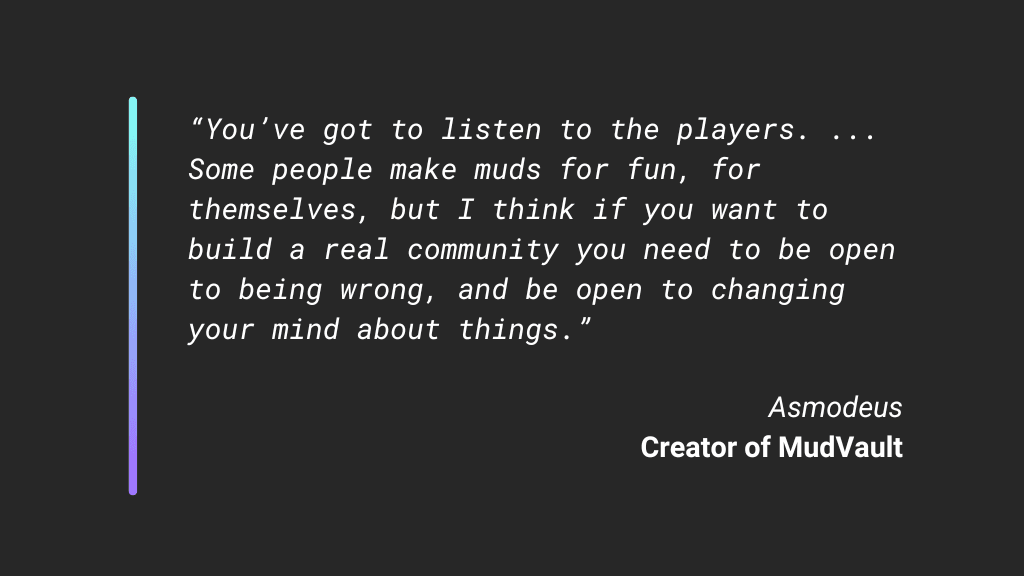
Challenges and ongoing support
Under the hood, MudVault is built with NextJS and Supabase, hosted partly on Vercel and partly on a personal VPS.
Running a project like that comes with its share of hurdles, especially around hosting and sustainability. At first, parts of the site were hosted on Vercel’s hobby tier, but heavy tasks like image transformations quickly ate through the free allotment.
To avoid outages and mounting charges, Asmodeus migrated much of the infrastructure to a personal VPS.
“I do this for the love of the hobby,” he explained. “I really do not want to run ads, but I could add a banner to the top of the website if I had to. I’d prefer to keep the website ad-free, if possible.”
That balance – keeping costs down without compromising fairness – is one of MudVault’s ongoing challenges. To address it, Asmodeus is considering adding a donate button to the platform but is yet undecided. Accepting money could introduce bias – or at least the appearance of it.
Community support, whether through testing, feedback, or encouragement, is currently what keeps the project moving forward.
Resources, roadmap, and thanks
For anyone thinking of starting their own game or building community tools, Asmodeus recommends setting clear goals and talking to the audience you want to serve.
Too often, people dive into projects without considering whether players will actually enjoy the results. Early feedback helps refine ideas and avoid wasted effort, he explained.
Asmodeus was also quick to thank the MUD Discord server for their help and inspiration, with special mention of RahjIII, Grieffels, and Morwen. Their support has been key in shaping both Dark Wizardry and MudVault. “For the protocols page, I was lucky enough to get some help from Scandum and his website,” he added.
Though still growing, but MudVault is already carving out a niche as a stable resource for admins, builders, and players alike. Future plans include a random “featured MUD” section and a seamless desktop-to-mobile experience through the MUDForge Web Client.
Indeed, Asmodeus admits he’s been “sidetracked” lately making “the most ultimate webclient.” 😂
“It can be themed, all widgets can be moved and resized, and it’s got all of the features of the current client and more,” he said, hinting at what’s to come.
A big thank you to Asmodeus for taking the time to chat with me about the many things he’s been working on, from web client upgrades to MudVault MESH. I wish him all the best with his projects, including his café!
To keep up with MudVault, get involved, or learn more, you’re invited to visit his Discord at https://darkwiz.org/discord.
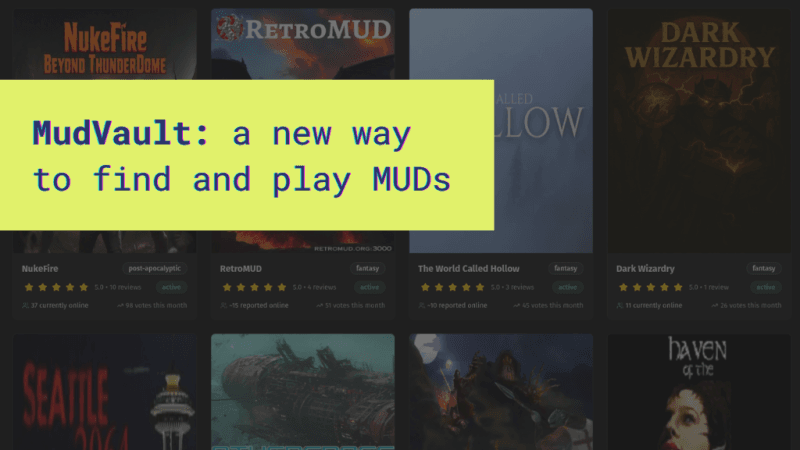

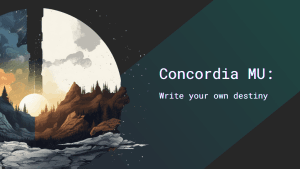
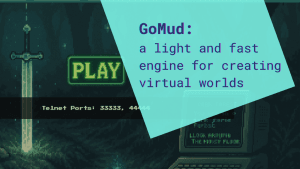

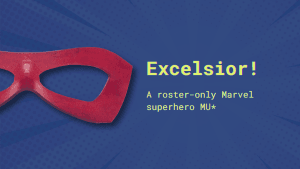
Leave a Comment